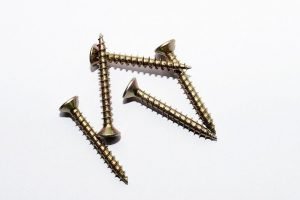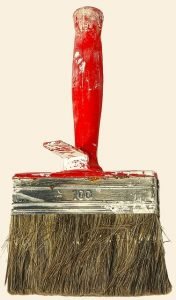
Having good plumbing is an important part of managing your home. This article lays out some effective tips for maintaining and maintaining your home plumbing.
To keep your septic tank in good working order, it is advisable to have it pumped out every five years. Doing so avoids sediment build up, so that you don’t have any kind of septic system backup. If the cost of pumping your septic tank seems a bit steep, remember that the cost of cleanup and repair of a failed septic system will be much higher.
Noisy pipes is an easy problem to fix. You must anchor any type of exposed pipes.
Avoid paying the plumber until he finishes the job. You might have to give them a deposit, but do not give them the entire sum of money until you are sure they have done a good job. Agree with the plumber in advance on the job and payment.
Don’t use harsh chemicals such as toilet tablets that claim to be cleaners in your toilet. These may deodorize, but they have the side effect of damaging the rubber in your toilet, which can prevent your toilet from functioning correctly.
If you have well water and discover orange or pink discoloration on your bathtub or sink, you probably have iron in your water supply. You will need a water softener in order to take care of this problem, which you could purchase at a local store, or hire someone to go to your home and fix it for you.
Pour equal parts baking soda followed by vinegar down your bathtub drain every month. Plug up the drain and allow the chemical reaction takes place. After waiting a few minutes, clear the pipes out with a gallon of boiling water. This method should clear pipes of accumulated hair and soap scum.
Here is a good tip for a safe, inexpensive way to keep the drain in your bathtub trouble-free. Take one cup of baking soda and pour it into the drain. Then do the same with a cup of vinegar. Do this procedure once a month. Use a plug or rag to cover the drain, because there will be a chemical reaction in the pipes. After a few minutes,just flush the drain out with water that has reached a boiling point. Doing this will clear your pipes of any soap scum or hair that has accumulated.
Overflow Holes
Do special checks on your sink overflow holes to ensure they are not becoming clogged. The overflow holes help prevent a sink from spilling. When blocked, they don’t work properly and the water can spill out onto the floor. Clean the overflow holes when you can, like when doing periodic checks for various other repairs and problems.
Check your fixtures to ensure the overflow holes are not clogged up. Clear overflow holes when you are doing your periodic checks for problems and things that should be addressed.
Enzyme-based cleaners are the best bet for unclogging stubborn clogged pipes. These will utilize natural bacteria to transform sludge into a liquid that can be removed. The best options on the market now are enzyme cleaners.
You can save lots on energy bills by putting in efficient shower heads. Most of the hot water is consumed in our showers. By installing an energy-efficient shower head that might cost a few dollars, you can save over a hundred bucks or more per every shower head in the home.
Cleaning the aerator will fix low water pressure issues that are caused from sediment buildup. Take the aerator apart and clean it with a brush and some vinegar. Then you can simply rinse off the aerator and reassemble the faucet. Removing obstructions from the aerator should allow for increased water pressure.
If you notice water draining into your dishwasher, the likely culprit is a kitchen sink hose not properly attached. The hose from your sink and the dishwasher needs to go up and then down in order for the water of both locations to not mix.
You can use two different methods to remove clean out plugs. The first method involves a hammer and chisel to loosen the fitting. Your other option to try is to chisel through the out plug.
Some people think it’s alright to get away with the cheapest version at the store. The problem with this is that these models are not highly durable and can break much easier.
Be sure to check that your faucets on the outside of your home are free of leaks as winter approaches. If you find dripping or leaking, make the repairs before the temperature plummets. Whatever material your pipes are built from, very cold water pressure can make pipes crack. Even a very tiny crack can cause water to get out and flood your home, or at least cause some water damage.
Frozen pipes can do very extensive and expensive plumbing problems. The first step is to check your outside pipes are well insulated. Before winter, turn off the water to the outside faucet and drain and store all of your hoses. This can save some serious money on plumbing bills.
Water valves that are rarely ever used often become fused together. Periodically turn these valves off and one. Use specially designed oils that can work their way through the buildup to keep them loosened up and operable.
If you need to repair your home plumbing, you have a lot of options as to what to do. This knowledge is extremely valuable not only for fixing up your own home, but also for not having to rely on other people.
It is important to know where your cut-off valve is for the water on your property. It is likely very close to your water meter. Toilets, sinks and other fixtures should also have cut-off valves. Show your family members where these valves are, and then add markings that show how they should be turned off if an emergency occurs.



